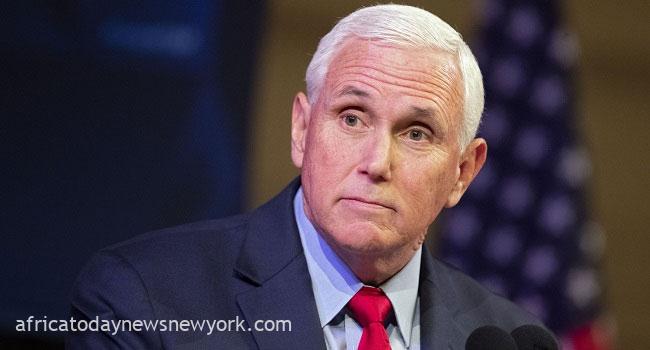Former vice president of the United States, Mike Pence was on Tuesday ordered by a US judge to testify about his conversations with Donald Trump leading up to the 2021 assault on the Capitol in continuation of the ongoing probe.
According to reports, Washington’s Chief Judge James Boasberg in his ruling declared that Pence should have to provide answers to a federal grand jury on any questions probing potential criminality by the then-president.
However, Pence can decline to discuss his actions on the day of the insurrection itself, when he was serving as president of the Senate for the certification of the election, the reports said.
Africa Today News, New York reports that the ruling, which remains under seal, marks a partial victory for the Justice Department as it probes the insurrection, which was linked to several deaths, left more than 100 police officers wounded and led to more than 1,000 arrests.
Trump is running for the White House again in 2024, and Pence indicated he may challenge him for the Republican nomination.
Read Also: Again, Pence Lambasts Trump Over Role In Capitol Attack
Investigators are probing Trump’s role in provoking the violence on January 6, 2021 as part of a broader alleged effort to cling to power after losing the presidential election to Joe Biden.
Both Pence and the government’s quasi-independent prosecutor, Special Counsel Jack Smith, can challenge the parts of the decision that didn’t go in their favor.
Neither has announced whether they intend to appeal, although Pence has previously vowed to fight his summons all the way to the Supreme Court if necessary.
Pence and Trump have been at loggerheads since Pence refused to go along with Trump’s efforts to overturn the election. Section of the pro-Trump mob that stormed the Capitol called for Pence to be hanged, forcing him to flee.
Pence has already described many of the relevant conversations with Trump in “So Help Me God,” a memoir published last year, but he refused to testify before a House committee that investigated the insurrection.
He had argued unsuccessfully that he was allowed to avoid giving evidence under the Constitution’s “Speech or Debate” clause, which shields officials in Congress from legal proceedings specifically related to their work.
The judge also rejected a separate assertion by Trump of executive privilege — which protects aides from having to testify about certain conversations with presidents.

